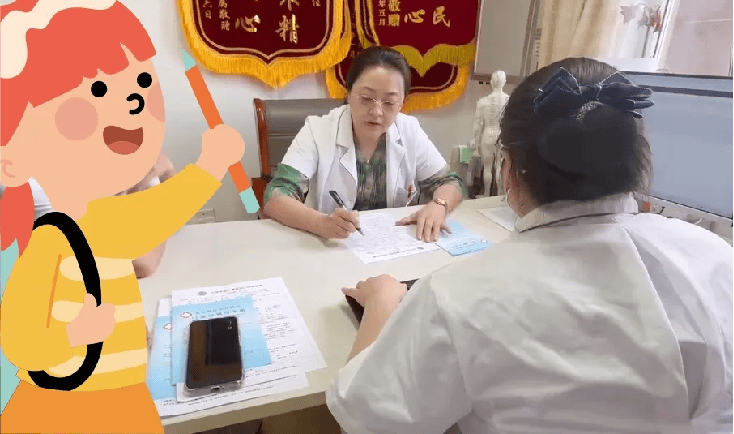Kai Kai (alias) is 3 and a half years old, but his language development is far behind other children of his age. At first, his mother thought this was just temporary and assumed that as he entered kindergarten and interacted with more children, he would naturally improve.
However, he was advised to leave the kindergarten in less than 3 days… The teachers noted that Kai Kai hardly communicated with anyone, did not interact with other children, always sat alone in a corner talking to himself, and even did not respond to calls, as if he hadn’t heard anything…
Director Wang Bo, after listening to Kai Kai’s mother, conducted a detailed diagnostic check on the child and found many issues:
1. No response when called, lack of eye contact
2. Talking to himself, lack of focus
3. Lack of language interaction, poor language expression
4. Enjoying repetitive actions
5. Poor cognitive understanding, logic thinking
6. Unable to differentiate between “you, me, him”
After a comprehensive check and evaluation, the child was eventually diagnosed with ‘Autism Spectrum Disorder with Attention Deficit Hyperactivity Disorder (ADHD)’. Director designed a comprehensive treatment plan for Kai Kai, including physical therapy, rehabilitation training, etc.! After two treatment sessions, there was a noticeable improvement in Kai Kai’s condition!
There was progress; he started responding to others. On August 5th, in the consultation room, while the director was discussing the child’s recovery progress with his mother, he noticed that Kai Kai:
Initiated conversations, saying: “Helped grandma make dumplings, and grandma praised him!”
Eye contact improved, rigid behavior disappeared, and talking to himself ceased.
Improved attention, cognitive understanding, and logic thinking.
It was indeed a significant progress! The fact that he was initially advised to leave kindergarten was because of his inability to speak and interact…
Seeing the progress in the child today makes all the efforts worthwhile! The director informed the mother: “The child’s recovery is progressing faster than I imagined! After consolidating for a while, he’ll be ready for school!”
For children with autism, only when they have core competencies can they be sent to school and grow up healthily. When it comes to core competencies, many parents may not be clear about which are essential!
Mainly, they include: eye contact, responsiveness, shared attention, environmental referencing ability, imitation, sitting skills, understanding and following rules, language understanding, language and non-verbal expression, logical thinking, game association, and social skills.
Today, let’s briefly introduce these fundamental abilities.
Life self-care skills:
School and home environments are different. A teacher cannot attend to every student’s smallest needs and details. Children with autism need to have basic self-care skills, such as eating independently, drinking water, using the restroom, packing their bags, etc. Teachers and classmates may remind or assist at times, but they cannot do everything for them.
Physical control abilities:
For example, sitting properly, fine motor skills, gross motor skills, undisturbed behavior, etc. In a classroom setting, maintaining overall order is crucial. If a child engages in too many disruptive behaviors, it can upset other students. Since a typical class lasts between 30 to 45 minutes, being able to sit calmly is a fundamental skill children need to possess.
Language skills:
For children with autism to adapt to school life, they need basic communication abilities to understand teachers’ instructions, express their needs, and interact with peers.
For instance, when a teacher instructs: “Everyone, line up for the restroom, wash your hands after using it, then return to your seats.” This instruction has a sequence that the child must comprehend and follow in order to establish good classroom order. Otherwise, disrupting the queue can lead to chaos and inconvenience others.
Cognitive abilities:
For instance, imitation, attention, observation, etc. Children’s learning begins with imitation. If a child lacks observation skills, has weak attention, and poor imitation skills, they may get distracted in class, leading to lower learning efficiency. Lack of basic cognitive abilities not only affects learning but also impacts relationships with classmates.
Social skills:
Every parent hopes their child can bond with classmates at school. However, children with autism face severe social barriers. If they don’t respond when spoken to, others may stop interacting with them. Some children with autism may long for friendships but may use improper approaches, causing others to avoid them. Developing social skills in children with autism involves understanding group rules, learning how to interact with others, and mastering emotional control.
Friendly reminder:
For children with autism to smoothly integrate into campus life, professional early intervention is necessary to help them master basic language, self-care, and learning skills to meet the requirements of inclusive education. Therefore, do not panic when dealing with autism; early intervention is crucial!


